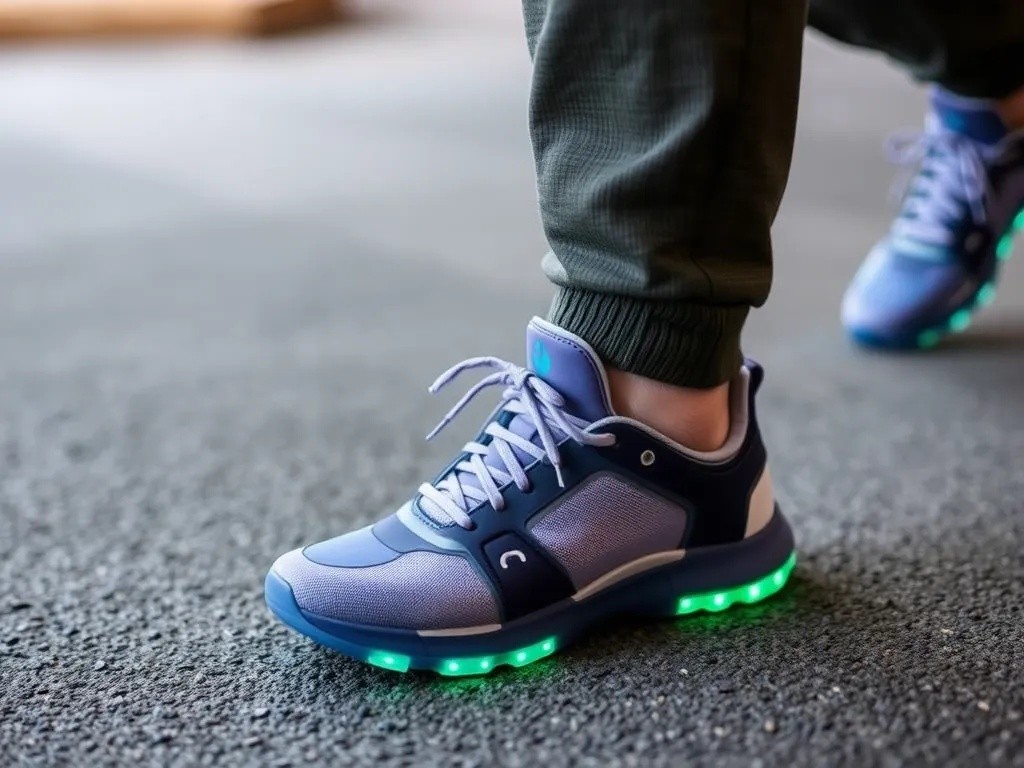In recent years, there has been a significant advancement in the field of Artificial Intelligence (AI) and Augmented Reality (AR). These technologies have become increasingly popular and have the potential to enhance virtual experiences in various fields such as gaming, education, healthcare, and...
Smart Shoes Track Health and Warn About Medical Issues Early

The future of healthcare is literally at our feet. Smart shoes equipped with advanced sensors and artificial intelligence are transforming how we monitor our health, providing early warnings about medical issues that could save lives. These innovative devices are turning everyday footwear into powerful diagnostic tools that work continuously without requiring any effort from the wearer.
Technology Inside Your Shoes
Modern smart shoes are engineering marvels packed with sophisticated technology. Pressure sensors throughout the sole create detailed maps of how your feet contact the ground. Accelerometers track every step and movement pattern. Temperature sensors monitor foot warmth, while moisture detectors track perspiration levels. All this data is processed by onboard AI systems that can identify concerning patterns before they become serious problems.
What Smart Shoes Monitor
- Gait analysis and walking patterns
- Balance and stability indicators
- Pressure distribution across feet
- Step count and activity levels
- Temperature variations that may indicate circulation issues
- Weight distribution changes over time
Early Detection Saves Lives
The real power of smart shoes lies in their ability to detect medical issues before obvious symptoms appear. Subtle changes in gait can indicate neurological problems months before a person notices anything wrong. Alterations in pressure patterns might reveal developing foot ulcers in diabetic patients, allowing for intervention before serious complications arise. Shifts in balance could warn of inner ear problems or early signs of conditions like Parkinson's disease.
Real-World Success Stories
Numerous cases highlight the life-saving potential of this technology. A man in California received an alert about unusual pressure patterns in his foot, leading to the discovery of a tumor before it spread. An elderly woman's smart shoes detected deteriorating balance patterns, prompting a doctor's visit that revealed a previously undiagnosed heart condition. A diabetic patient avoided amputation when his shoes warned of developing neuropathy.
How the Warning System Works
Smart shoes don't just collect data—they analyze it using sophisticated algorithms. The AI system learns your normal patterns during an initial calibration period, then continuously compares current metrics against this baseline. When deviations exceed certain thresholds, the system sends alerts to your smartphone or directly to your healthcare provider, depending on severity.
Types of Alerts
The warning system operates on multiple levels. Minor changes trigger informational notifications, suggesting you monitor the situation. Moderate concerns generate recommendations to schedule a routine doctor's visit. Serious anomalies create urgent alerts advising immediate medical attention. This tiered approach prevents alarm fatigue while ensuring critical issues receive appropriate urgency.

Specific Health Conditions Detected
Smart shoes excel at identifying various medical conditions. For cardiovascular health, they can detect subtle changes in circulation through temperature monitoring. Neurological conditions reveal themselves through altered gait patterns and balance issues. Musculoskeletal problems show up as compensatory walking patterns when someone unconsciously favors one side. Metabolic conditions like diabetes become apparent through changes in foot temperature and pressure distribution.
Benefits for Chronic Disease Management
People living with chronic conditions find smart shoes particularly valuable. Diabetic patients receive continuous monitoring of foot health, crucial for preventing complications. Arthritis sufferers track inflammation patterns and adjust medication timing accordingly. Individuals recovering from strokes monitor their rehabilitation progress objectively, helping therapists optimize treatment plans.
Privacy and Data Security
With health monitoring comes responsibility for data protection. Reputable smart shoe manufacturers implement robust encryption and give users complete control over their information. Data stays on your device unless you explicitly choose to share it with healthcare providers. Regular security updates protect against emerging threats, and transparent privacy policies explain exactly how information is used.
User Control
Users decide what data to collect, how long to store it, and who can access it. Options exist to operate in offline mode, syncing only when connected to trusted networks. Anonymized data contributions to research are always optional, and users can delete their entire health history whenever desired.
Integration with Healthcare Systems
Smart shoes are increasingly connecting with broader healthcare ecosystems. Data can seamlessly transfer to electronic health records, giving doctors comprehensive information during appointments. Some insurance companies offer discounts for users who share their activity data, recognizing the preventive value of continuous monitoring. Telemedicine platforms incorporate smart shoe data into remote consultations, enabling better diagnosis without in-person visits.
The Doctor-Patient Partnership
Healthcare providers enthusiastically embrace smart shoe technology. Objective, continuous data helps them make more informed decisions than relying solely on patient recollections during brief appointments. Doctors can spot concerning trends between visits and intervene proactively rather than reactively treating problems after they develop.
The Future of Smart Footwear
Next-generation smart shoes will include even more sophisticated sensors capable of detecting additional biomarkers. Research is underway on integrating ECG monitoring through foot contact points and blood glucose estimation through non-invasive sensors. Future versions might even administer medications automatically, adjusting doses based on real-time health data.
Conclusion
Smart shoes represent a paradigm shift in healthcare, transforming passive footwear into active health guardians. By providing continuous monitoring and early warnings, they empower people to take control of their health and catch problems before they become serious. As the technology advances and becomes more affordable, smart shoes will likely become as commonplace as fitness trackers, playing a crucial role in the preventive healthcare revolution.



